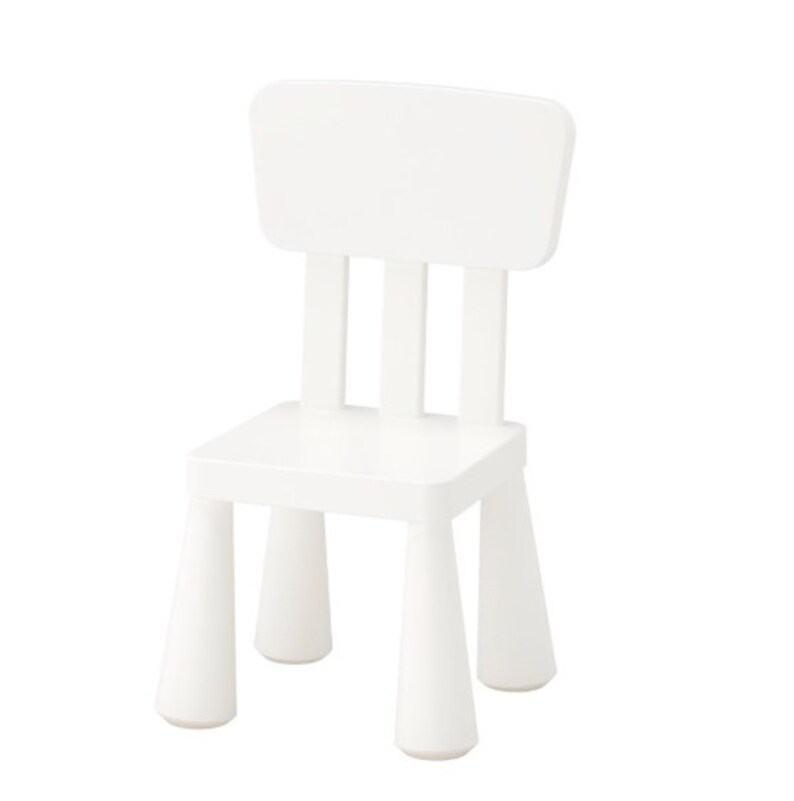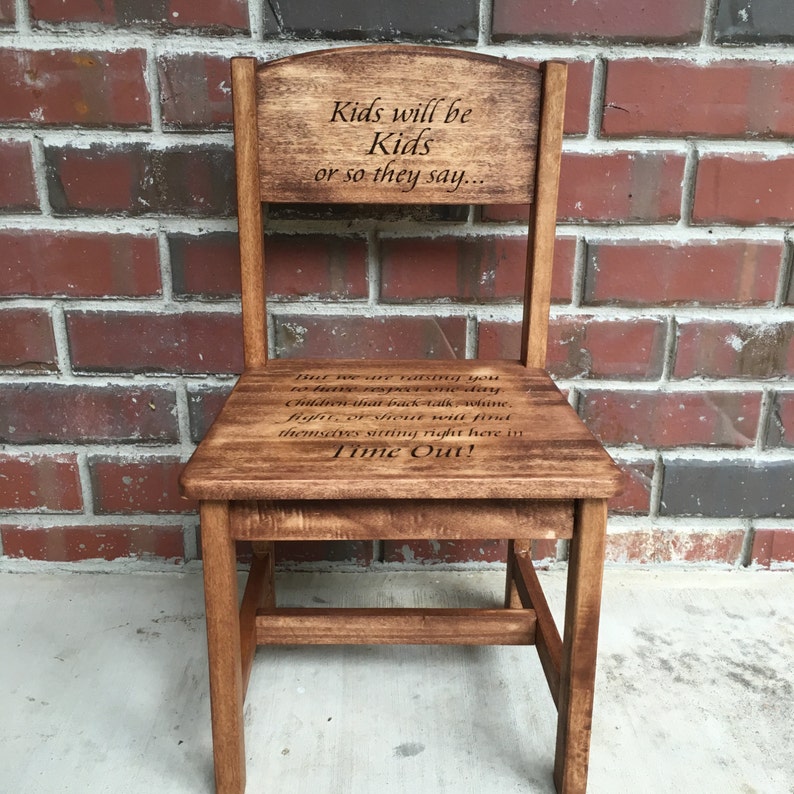
As such, time-out is one component of a collection of behaviour management strategies, which are predicated on initially strengthening and consolidating the parent-child relationship.
#Little boys time out chair how to#
Within these parent training interventions, time-out is introduced alongside teaching parents how to give effective, developmentally sensitive commands how to use planned ignoring in conjunction with praising the ‘positive opposite’ of an undesirable behaviour using natural or logical consequences, and other developmentally appropriate ways of responding to a child’s non-compliance or defiance. The intention of these programmes is to equip parents with a range of techniques or strategies to respond to children’s non-compliance or defiance in a safe and effective way. It is incorporated in the second phase of almost all of the prominent, evidence-based parent training interventions. Time-out (technically, time-out from positive reinforcement) involves a brief pre-planned withdrawal of parental attention (typically while the parent remains in the room) and restriction of access to desirable items such as toys, in response to a child’s defiance or non-compliance with a parent’s clear and fair instruction. Within Parent-Child Interaction Therapy (PCIT), these phases are known as Child Directed Interaction (CDI) and Parent Directed Interaction (PDI), respectively. These programmes are drawn from the work of Constance Hanf and Gerald Patterson in the 1960s and involve two phases-initially strengthening the parent-child relationship through child-led play, and later providing parents with support to have developmentally appropriate expectations of children and manage their children’s challenging behaviour safely and effectively. Prominent examples include the Community Parent Education Program (COPE ), Defiant Children, Helping the Noncompliant Child, The Incredible Years, Triple P, and Parent-Child Interaction Therapy (). Parent training has a more extensive evidence base than any other psychosocial treatment for any disorder in the child mental health context. Internationally, childhood conduct problems represent one of the most common mental disorders diagnosed in children under seven years and if left untreated, may persist into adulthood with widespread social and economic consequences. Parent training-also known as Behavioural Parent Training or Parent Management Training-is a term used to describe an empirically sound suite of programmes for the treatment of childhood conduct problems and other childhood psychopathology.

The paper is oriented toward practitioners of PCIT but is of relevance to all providers of parent training interventions for young children.
#Little boys time out chair professional#
It also acknowledges factors within the clinical setting that impact on time-out’s use, such as the views of administrators and professional colleagues.

This practitioner review explores the dynamics of the parent-practitioner relationship as they apply to the teaching and coaching of time-out to parents.

Yet this relationship, and practitioner perspectives, attitudes and values as they relate to time-out, are often overlooked. The parent-practitioner relationship is integral to the success of Parent-Child Interaction Therapy (PCIT), an evidence-based treatment which involves live coaching of parent(s) with their young child(ren). This dissonance has the potential to undermine the dissemination and implementation of an effective suite of treatments for common and disabling childhood conditions. However, this research evidence has been largely oriented towards the academic community and is often in conflict with the widespread misinformation about time-out within communities of parents, and within groups of treatment practitioners. Existing comprehensive reviews suggest that time-out is both safe and effective when used predictably, infrequently, calmly and as one component of a collection of parenting strategies-i.e., when utilised in the manner advocated by most parent training programmes.

Time-out is a component of many evidence-based parent training programmes for the treatment of childhood conduct problems.


 0 kommentar(er)
0 kommentar(er)
